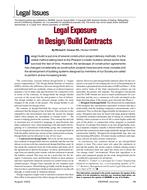A two-room environmental chamber was constructed to create environments that could simulate the temperature gradients across a wall and ceiling section of a two-story building. Idealized openings could be mounted in a test structure between the two rooms at 10 different locations. The stratification of air temperature on both sides of the test structure and the differential pressure profiles due to the stack effect were observed for four opening distributions and mean temperature differences ranging from 29°F to 88°F (16°C to 49°C). The temperature stratification on the warm side of the simulated structure was observed to vary from 3.6°F to 15.5°F(2.0°C to 8.6°C). A linear regression analysis was perforrned on each differential pressure profile to determine if the observed range of temperature stratification had a significant influence on the prediction of the differential pressures resulting frorn the stack effect. It was deterrnined that the observed temperature stratification did not influence the prediction of the pressure differences. A regression method was developed to determine the elevation of the neutral pressure level and the mean density difference from a single differential pressure profile.
Citation: ASHRAE Transactions, vol. 95, pt. 1, Chicago 1989
Product Details
- Published:
- 1989
- Number of Pages:
- 13
- File Size:
- 1 file , 1.6 MB
- Product Code(s):
- D-24496


